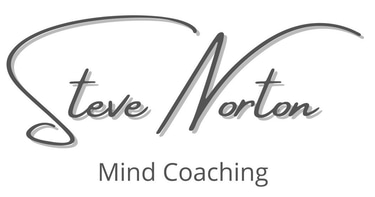Using Hypnotherapy to Combat Anxiety and Boost Self-Confidence and Self-Worth
Steve Norton can help to illuminate feelings of low self worth and boost self confidence through hypnotherapy.
8/26/20244 min read


Understanding Anxiety, Low Self-Confidence, and Low Self-Worth
Anxiety, low self-confidence, and low self-worth are interconnected psychological issues that impact millions of people worldwide. While they often co-occur, it is essential to delineate their distinctions and understand their unique attributes. Anxiety manifests as pervasive feelings of worry or fear, often accompanied by physical symptoms such as rapid heartbeat and sweating. It is frequently triggered by external stressors or past trauma and can severely impede daily functioning.
Low self-confidence, on the other hand, pertains to a lack of belief in one's abilities or judgment. Individuals with low self-confidence may avoid new challenges or shy away from social interactions due to fear of failure or rejection. This often stems from childhood experiences, negative self-talk, or societal pressures that undermine an individual's sense of competence.
Low self-worth goes deeper, affecting an individual's fundamental perception of their value. Those struggling with low self-worth feel inadequate and unworthy of love or success. This condition can be rooted in early life experiences, such as neglect or abuse, and is perpetuated by negative self-judgments and comparisons with others.
This can significantly impact daily life, from hindering career advancement to straining relationships.
Expert insights reveal that negative self-talk and societal pressures exacerbate these issues. It is important to emphasize the importance of fostering a kind, internal dialogue to combat feelings of inadequacy. Real-life examples, such as individuals who overcome these struggles through therapy and self-improvement practices, illustrate the potential for positive change.
By comprehensively understanding the definitions, causes, and effects of anxiety, low self-confidence, and low self-worth, readers can begin to identify their own challenges and seek appropriate interventions. With Steve's help and expertise you would be able to re-train your mind and illuminate these feelings.
How Hypnotherapy Works to Reprogram the Mind
Hypnotherapy operates on the foundational principle of accessing and reprogramming the subconscious mind to foster positive change. The subconscious mind holds deeply ingrained beliefs, memories, and patterns of behavior, often stemming from past experiences or traumas. These subconscious patterns significantly impact our conscious thoughts, feelings, and reactions. Hypnotherapy seeks to address and reshape these underlying mental constructs, thus alleviating symptoms of anxiety and boosting self-confidence and self-worth.
The process of hypnotherapy with Steve begins with the client entering a state of deep relaxation, achieved through guided relaxation and intense concentration exercises. In this heightened state of awareness, also known as a trance, the conscious mind's critical faculties diminish, allowing direct communication with the subconscious. Steve then employs various techniques, such as positive affirmations, visualizations, and suggestions, to influence and modify negative thought patterns and behaviors.
Practitioners of hypnotherapy, like Steve, assert that this method can significantly alter a person's mental landscape. Through hypnotherapy, clients can access a more resourceful and empowered state of mind, leading to profound changes in their outlook and behavior. Clients who have undergone hypnotherapy for anxiety often report a reduction in symptoms and an increase in self-confidence and self-worth. It can help build a stronger and more confident version of one self.
Overall, hypnotherapy presents a compelling method for addressing anxiety and fostering improvements in self-confidence and self-worth. Its targeted approach to the subconscious mind allows individuals to confront and reshape deep-seated issues, paving the way for lasting positive change.
The Journey to Healing: What to Expect from Hypnotherapy Sessions
The decision to embark on hypnotherapy often marks the beginning of a profound journey towards healing and self-improvement. Understanding what to expect can help ease anxieties and demystify the process. The journey typically begins with an initial consultation and assessment. During this stage, the hypnotherapist seeks to comprehend your unique challenges, experiences, and therapy goals. It's also an opportunity to discuss any concerns or misconceptions you might have, such as the fear of losing control or the myth of mind manipulation. As a qualified hypnotherapist, Steve can reassure you that hypnosis is a collaborative process where you remain in control and aware throughout.
Following the consultation, the actual hypnotherapy sessions commence. The length of these sessions can vary, but they generally last between 45 to 60 minutes. The number of sessions needed depends on individual circumstances and the therapeutic goals, though many people begin to notice positive changes within four to six sessions. During the sessions, a variety of techniques may be employed, including regression therapy, suggestion therapy, visualization and Steve's own, version of eye movement therapy. Regression therapy helps uncover and address root causes of anxiety or low self-worth by revisiting past experiences, while suggestion therapy focuses on reinforcing positive thoughts and behaviors. Visualization, on the other hand, leverages the power of mental imagery to cultivate a sense of calm and confidence.
A common concern is the fear of losing control during hypnosis. However, contrary to popular belief, individuals cannot be made to do anything against their will or morals during hypnotherapy. Instead, it functions as a state of focused relaxation, enabling a deeper connection with one’s subconscious mind. To maximize the benefits of hypnotherapy, it's advisable to approach sessions with an open mind and a commitment to the process. Preparing for sessions by identifying specific issues you wish to address and staying consistent with follow-up appointments can significantly enhance therapeutic outcomes, setting you on a path to improved emotional health and self-worth.
To book a consultation with Steve, Click Here
